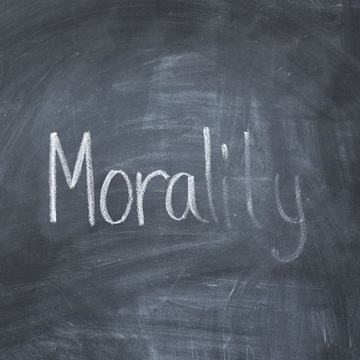
- admin
- November 27, 2024
Morality, Agency, and Free Will: Key Themes in Troy Biffath’s Lilith – The Rise and Fall of Darkness
Troy Biffath’s Lilith – The Rise and Fall of Darkness is more than just an entertaining fantasy story; it is also a thought-provoking examination of morality, agency, and free choice. In a universe where characters must choose between good and evil, the novel is a profound story about the spiritual problems that come with being human. The tension between personal responsibility and external pressures is central to the plot, and it resonates strongly with many readers, particularly those who are familiar with Latter-day Saint (LDS) beliefs on agency and moral choice.
Lilith offers readers who are interested in stories about spiritual warfare and moral quandaries a unique perspective on the human condition. The story provides more than just pleasure; it teaches us the significance of choosing justice in the face of external influences. Let us examine the fundamental concepts of morality, agency, and free will in Biffath’s work and see how they relate to essential LDS doctrines.
The Battle Between Good and Evil: A Universal Conflict
At the heart of Lilith is the unending conflict between good and evil, which takes place on both a cosmic and intimate scale. This conflict is about more than just exterior forces like angels and devils; it is also about the characters’ personal decisions. They are continuously forced to choose between light and dark, good and evil. These decisions are critical to the plot and demonstrate the complicated link between agency and morality.
For LDS readers, the concept of spiritual battle will be familiar. The idea that we are all fighting a battle between good and evil, where our decisions matter and impact our eternal fate, is central to LDS doctrine. In Lilith, characters are faced with the same choices that people face in their own lives: whether to follow divine principles or surrender to temptation. The book emphasizes that morality is more than just following regulations; it is also about making decisions that represent one’s core values.
Free Will and Agency: A Key Theme
One of Lilith’s most compelling parts is its examination of free will and agency. Agency—the ability to choose—is a basic tenet in LDS theology, and the book does a great job of demonstrating how our decisions have consequences. Characters in Lilith are continuously faced with situations that test their free will. Whether people choose to follow a greater calling or succumb to the pressures of others around them, the agency is at the forefront.
The idea of agency cannot be separated from the concept of personal responsibility. Characters in Lilith’s world are active shapers of their futures rather than passive consumers. They are responsible for the decisions they make, and the book underlines that while external circumstances may influence them, they bear ultimate responsibility. This is consistent with LDS teachings that people are responsible for their actions and that the choices they make in this life have eternal implications.
The Responsibility of Selecting Good: Despite External Pressures
Another significant element in Lilith is the idea that people must make good decisions even when external circumstances drive them in the opposite direction. The characters in Lilith face a variety of problems that tempt them to make ethically ambiguous decisions. However, the narrative underscores that true strength comes from overcoming these temptations and choosing virtue, no matter the cost.
This concept is very pertinent to LDS teachings about personal accountability. The LDS church teaches that regardless of circumstances or external forces, each person has the responsibility to do what is right. This includes rejecting peer pressure, societal conventions, and internal urges. In Lilith, the character’s capacity to make these difficult decisions serves as a reminder that morality isn’t about being perfect—it’s about choosing good even when it’s complicated.
Parallels between LDS teachings on agency and free will
For those familiar with LDS theology, Lilith’s themes will be closely tied to lessons regarding agency, moral agency, and the repercussions of decisions. In the LDS religion, God has given everyone the capacity to choose between good and evil, and these choices ultimately decide our spiritual path. This aligns with Lilith’s depiction of characters confronted with challenging decisions that challenge their ethical integrity.
LDS scripture states, “Men are, that they might have joy” (2 Nephi 2:25), emphasizing that this joy is derived from agency—the ability to choose. The Book of Mormon asserts that “whatsoever is good cometh of God” (Moroni 7:13), highlighting the idea that ethical decisions are in harmony with divine intention. In Lilith, characters who choose virtue despite adversity are shown to be better aligned with the light, echoing the notion of moral agency.
Conclusion: Why Lilith is a Valuable Read
Lilith by Troy Biffath is more than just a compelling narrative about spiritual conflict; it is also an intelligent examination of free choice, morality, and agency. For readers interested in these topics, particularly those familiar with LDS teachings, the book provides a fascinating tale that prompts us to contemplate our own choices and the power of agency in creating our lives.
The characters’ trials in Lilith represent the real-life challenges humans experience when deciding between good and evil. Lilith, with its vivid storytelling and moral quandaries, provides an excellent opportunity to focus on our agency and the responsibility we carry in choosing virtue. In a world full of diversions and temptations, the book reminds us that our choices are essential and that true strength comes from choosing the good, even when it is challenging.
Whether you’re searching for a riveting fantasy adventure or a deeper investigation of spiritual concepts, Lilith is a book that will keep you thinking long after you finish the last page.
